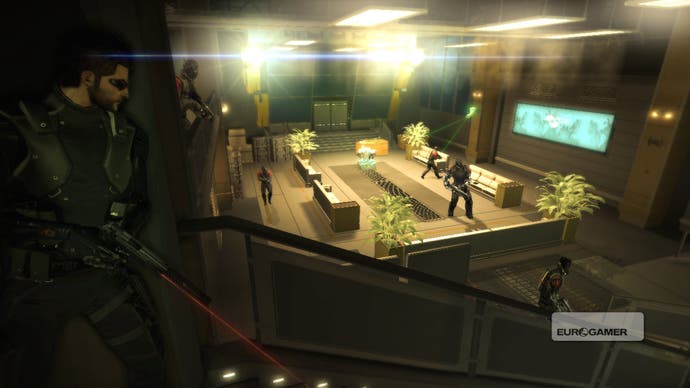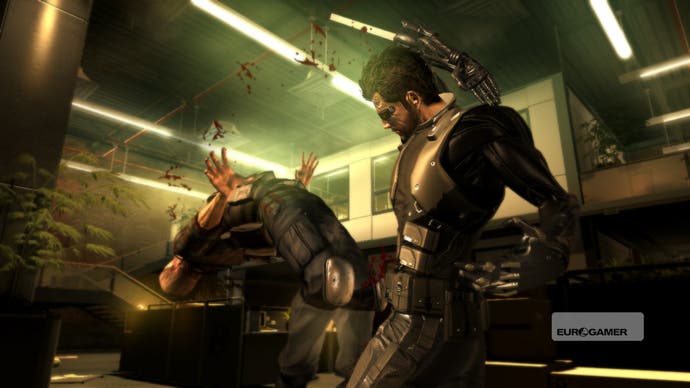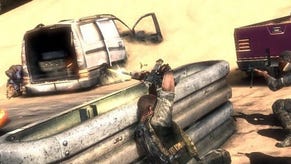Deus Ex: Human Revolution
Praxis makes perfect.
The original Deus Ex was a lot of things to a lot of people. In fact, that was pretty much the whole point: it was a game where you could save the world by shooting all the bad guys, but it was also a game where you could save the world by hiding in vents. The levels all had lots of different paths through them, and the gameplay systems were designed so that you could combine and experiment with them to make progress. Whether or not you played it, Deus Ex was responsible for a lot of the good things that you have spent money on in the last decade.
Sometimes, Deus Ex: Human Revolution is just the best Deus Ex tribute act ever. You can still save the world by crouching behind desks and hacking into people's email if you want, but it doesn't judge you if you want to do something else for a bit. In fact, it rewards you. It gives you an XP bonus for not being seen, but it also gives you an XP bonus for brutally incapacitating two guards on patrol with the same takedown.
There is no wrong kind of progress, there's just success. It would be nice if more of the games that wished they were Deus Ex treated us like that.
Sometimes, though - probably enough of the time that die-hard fans won't hold it up as high - Human Revolution doesn't quite live up to its ancestor. It gets the hub cities right, letting you crisscross streets, alleys, vents and sewers gathering information before going into your main mission; but it only has a couple of these hubs, and sometimes you're just flying between a sequence of levels in a dropship. It also has a few terrible boss fights where you are forced to use direct confrontation, and (on console at least) the load times are horribly long.

But Human Revolution is its own game too, and it doesn't take long before you're scraping the bottom of every hackable inbox to find out more about its global conspirators and the debate on bio augmentations, and scavenging as many credits and as much XP as possible so you can buy more of those augmentations to jump higher, punch harder and hide for longer. By then, you've stopped playing spot the difference and you're just writhing in the thick mud of chaos and conspiracy, and having a lot of fun working out how to wiggle your way through it.
You're playing as Adam Jensen, chief of security at Sarif Industries, a leading augmentation company and the target of all sorts of corporate jealousy and militant activism. Following a break-in at the start of the game in which you fall through some glass and get both your arms amputated (hang on, what?), you wake up to be told that your ex-girlfriend, a leading scientist, has been burned to a crisp and that it's your job to go around the world with your new robot arms finding out why.

The systems that underpin everything are all great. Dialogue and interrogation are like boxing, full of ducks and weaves and - if you buy the right augment - vital signs and physiological tells upon which you win or lose exchanges. Stealth is based on line of sight and the cover system is perfect, allowing you to hide and move with confidence in every situation. Direct combat is brutal and difficult, but once you think beyond the assault rifle and start mixing it up with various kinds of explosives and projectiles, you can really master your environment.
Hacking is my favourite, though. There are computers, door panels and security systems all over the world to break into using a mini-game where you have to take over nodes one by one without being noticed. If you are, then it's a race against time, or you can pull out and try again using viruses and augmentations to try to remain undetected. Most hacks yield bonus cash and tools if you probe the right regions, too. It's always about risk versus reward rather than just puzzle-solving.









